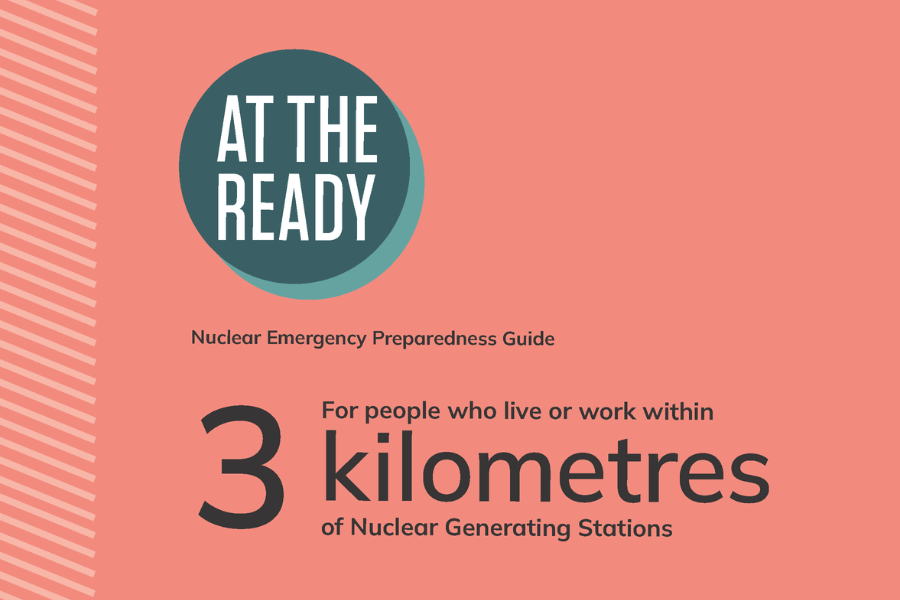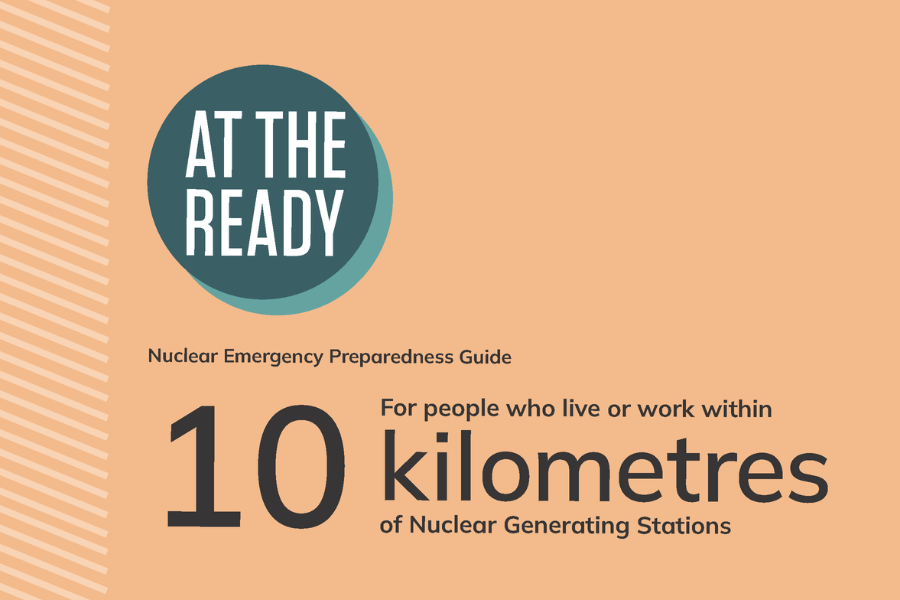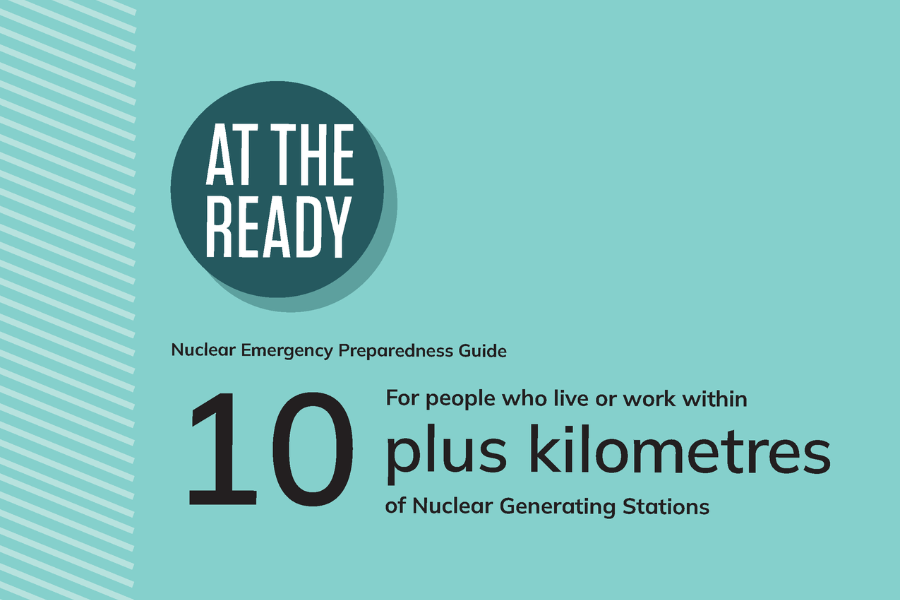The Nuclear Emergency Preparedness Guides below contain customized information that is specific to people who live or work within 3, 3 to 10, or more than 10 kilometres, respectively, of a Nuclear Generating Station. Select one below and have a look.
Nuclear Emergency Preparedness Guides by zone
| People within 3 kilometres of a nuclear generating station | People within 10 kilometres of a nuclear generating station | People more than 10 kilometres from a nuclear generating station |
|---|
 |
 |
 |
Listen: nuclear public alerting siren Listen: automated telephone call
Public Alerting Test - Spring 2026
|
|
Durham Region regularly tests its public alerting system once a year. The next test will be spring 2026.
In a real emergency, hearing the sirens means you must go indoors and tune into trusted local media outlets or government channels for further instructions.
|
| Province of Ontario Alert Ready |
|
The Province of Ontario regularly tests the Alert Ready system. They will issue a test message over television, radio, and compatible wireless devices:
|
How you will be Alerted of a Nuclear Emergency
|
| Durham Region and the Province of Ontario manage alerting systems to let you know that a nuclear emergency is occurring quickly. Durham's public alerting system includes loud sirens and an automated telephone calling system. The Province manages the alerts to cell phones.
In the unlikely event of a nuclear emergency, these alerting systems are designed to inform you of a nuclear emergency before any radiation is released so that you have time to act.
Sirens
|
Public alerting sirens will sound steadily during an emergency for at least three minutes. If you are outside and hear the sirens, you need to:
- Stop and go inside and turn on the TV or radio or visit official government websites and social media channels for instructions.
- Listen to media reports to stay informed of the situation.
- Follow instructions from the Province about what to do next.
You will only hear the sirens outdoors and within three km of one of the nuclear plants. See the interactive map above for siren locations.
|
Automated telephone calls
|
| The automated telephone system sends a recorded message to landline phones in the 10 kilometres area around the nuclear stations. If you have a voice over protocol (VoIP) phone or your number is not listed, you will not receive this type of alert. |
Cell phone, television and radio alerts
|
| The Province manages the Alert Ready system. These alerts broadcast through television, radio and cellphones. If there is a nuclear emergency, you will receive an alert to your cell phone, television, and radio. |
|
What to do
|
While a nuclear emergency is extremely unlikely, there are simple ways to reduce your risk of exposure to radiation if an emergency does occur.
Shelter in Place
|
|
If there is a nuclear emergency, go inside right away, close all windows and doors, and turn off your heating or air conditioning system. This simple action can prevent harmful particles from getting on you or entering your home.
Listen to the radio, watch the television, and look for information on official government websites and social media channels. Be ready to evacuate in case you are told to.
|
| Take KI pills |
|
KI (potassium iodide) can help reduce how much radioactive iodide enters your thyroid. If a nuclear emergency occurs, you will be notified before radioactive iodide is released. Only take the tablets when you are instructed to do so to ensure you are getting the greatest protection from them. KI pills are available to anyone who lives or works within 50 kilometres of the nuclear generating stations. Order yours now at preparetobesafe.ca.
Visit our Nuclear Awareness page to learn more about KI pills.
|
Evacuation
|
|
If it is safe to do so, you may be asked to evacuate. In some cases, sheltering in place may be more effective at preventing exposure to harmful particles. If you are directed to evacuate, follow the instructions of emergency personnel. Information will also be on the local radio, television stations, and official government websites and social media. Evacuating might mean you have to stay at an out-of-area relative's house, friend's house, or hotel.
Going to a reception centre for decontamination
- If you think you may have been exposed to harmful particles, you can go to a reception centre. These facilities will be set up for people and vehicles who may need to be checked for radiation and decontaminated before going to an evacuation centre or another place to stay.
Going to an evacuation centre
- Evacuation centres will be open for people who must leave their homes but do not have anywhere else to go.
- Remember to take your emergency kit(s) with you if you must evacuate.
|
|








